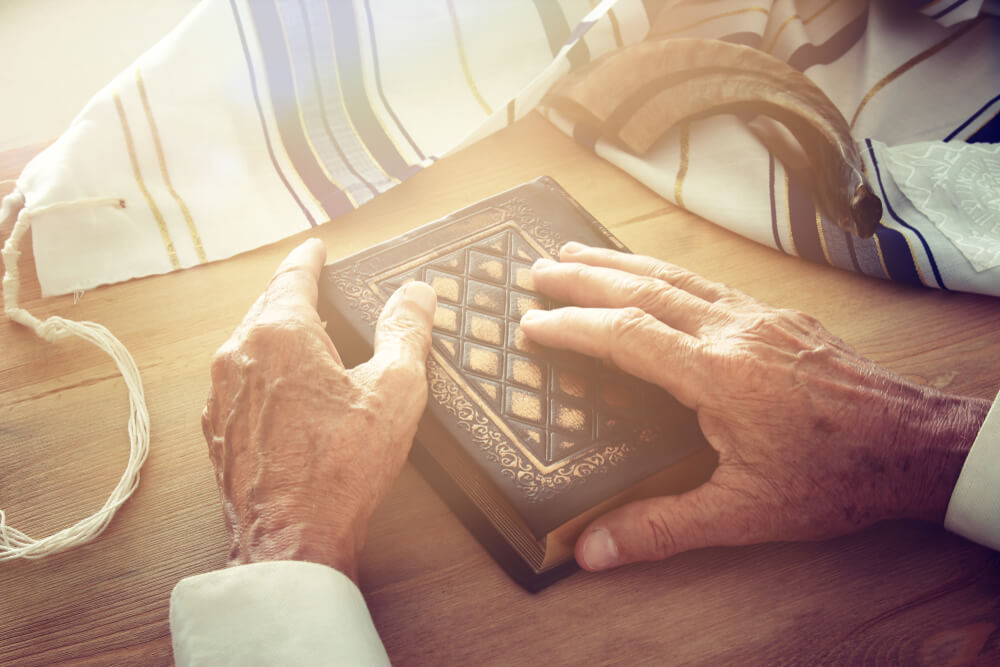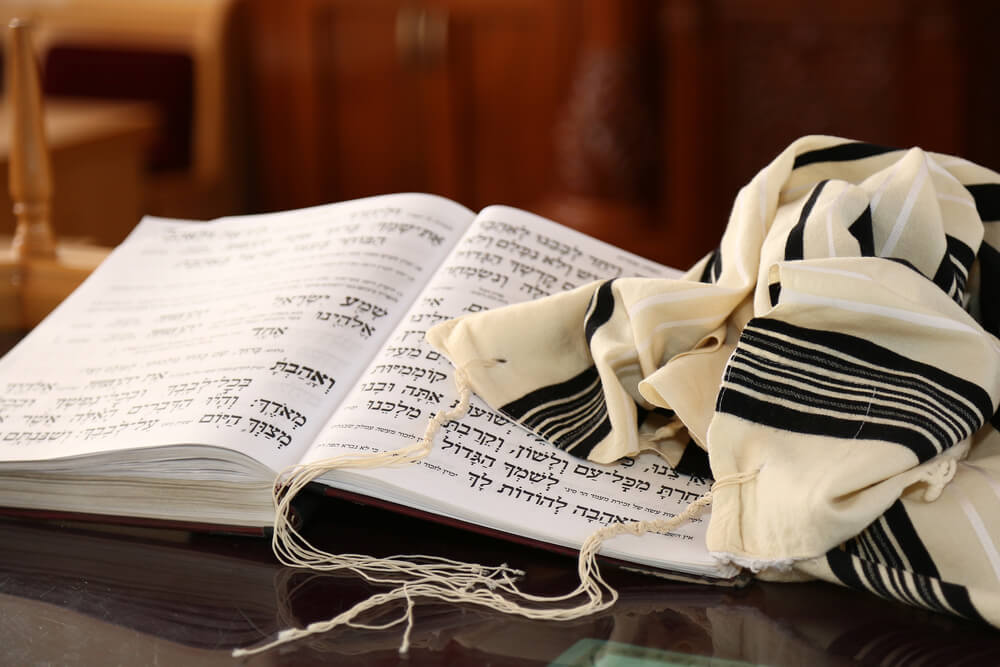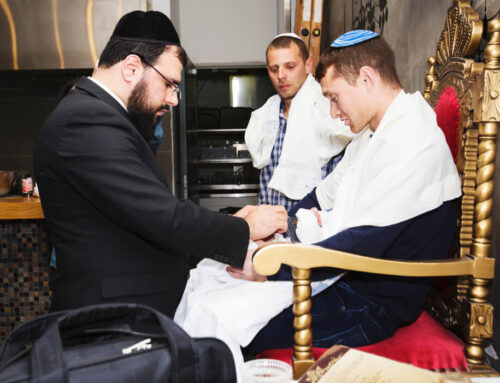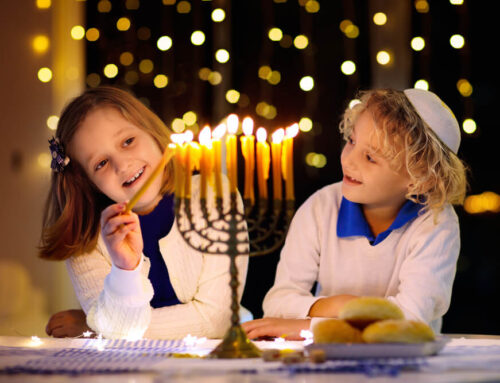In recent blog posts, we’ve talked about the importance of several milestones in the lives of Jewish children, including the Brit Milah, the Simchat Bat, and the Bar Mitzvah, and discussed the importance of the Jewish naming ceremony in general.
Still, do you know the trends behind traditional Jewish names through the ages? How have Jewish names and naming trends changed over the years? Do you know the actual story behind some old Jewish names that are still popular today?
With this blog post, Dr. Andrew Krinsky Mohel aims to shed more light on the history behind old Jewish names and explore the traditions behind naming in the Jewish community throughout the ages.
Traditional Jewish Names and the Importance of Naming Lineage
Even in Biblical times, family lineage was essential. Genealogies were documented, and the material that was written down mentioned the same name twice only in rare cases.
For starters, in Biblical times, parents sometimes gave a baby their name derived from the specific circumstances that could have been associated with the conception of the newborn – like in Isaac’s case. In other instances, the name’s background can be traced back to the actual delivery process (like in the example of Benjamin or Jacob).
Also, traditional Jewish names would be given from divine attributes or acts. These are roughly all the names that have the suffix or prefix “eh,” “ya,” “el,” and “yahu.” Then, you also have those names that can be traced back to nature. In these cases, the best examples would be the traditional Jewish names such as Jonah, meaning dove, or Deborah, which means bee.
During 516 BCE to 70 CE, referred to as the period of the Second Temple, Jewish names were given to newborn children more after their grandparents and the tradition of circumstance or event-based naming slowly lost its importance. This shift in naming customs and conventions was partly because maintaining genealogies was becoming more challenging in the Diaspora, not to mention that Egyptian, Greek, and other non-Jewish practices and customs also had their own influence on the Jewish communities.
Talmudic Names
When talking about traditional Jewish names, we must also discuss Talmudic times. In this period, during the naming of the newborn son at the circumcision ceremony, fathers would usually express the hope and wish that the child would grow up and live a life following the Torah, have a family, and perform good deeds. This blessing has become a crucial part of the Brit Milah and made its way into the naming ceremonies of Jewish baby girls.
Furthermore, the rabbis of the Talmudic period held the belief that divine inspiration guided the naming of a Jewish child in Biblical times, but after a while, parents started to give names to their children that would bring them good fortune. In these times, people believed that Jewish names would determine the newborn’s destiny and fate.
In this period, Jewish naming traditions also considered the Angel of Death, who might make a mistake and neglect someone just because they had the same name as someone who has already passed. In a nutshell, these two trends affected the names parents would choose for their children.
Old Jewish Names and Medieval Times

In this period, choosing Jewish names became more critical than ever. Why? During the medieval period, parents feared that the soul that carried the same name as their child would transmigrate into the newborn’s body. Furthermore, some things carried over from Talmudic times, and they also believed that the given name would determine the child’s fate and character.
On the other hand, different trends would develop within different Jewish communities during these times. Ashkenazi Jews did not name their babies after living relatives but only after those who had passed as a way of honoring their memory. In contrast, Middle Eastern, North African, Asian, and Sephardic Jews would often name their newborns after relatives who were alive.
Traditional Jewish Names: Ashkenazic and Sephardic Jews
Looking back on the history of Jewish names, Sephardic communities would sometime derive names from the circumstances of the delivery, as their ancestors did in biblical times. For instance, if their son were born during Hannukah, the child would be given the name Nissim, which means “miracles.”
Orthodox communities, still to this day, favor the traditional patterns and customs when it comes to naming, meaning family names are passed from one generation to the other, creating a sense of tradition and familial continuity. It is believed that when a baby gets their name after a well-loved relative, the child would grow up somewhat identifying with the ancestors and would follow in the family’s footsteps with a sense of pride.
Regarding Jewish names and naming traditions, it’s vital to mention that Jewish parents never give their babies the names of previously passed babies. Until the middle of the last century, parents who faced such tragic circumstances gave their newborns specific names, hoping the tragedy would not happen again.
For instance, in Ashkenazic families, the “new baby” would be called Alte if a girl or Alter if a male. Both names roughly mean “the old one.” It was believed that these names would protect the baby from the Angel of Death, who would not recognize the baby if it didn’t have a real name. In these cases, these children would be given a “real name” when they reached an age when they could marry.
Sephardic parents had the tradition of giving protective names such as Mercada or Mercado, both of which mean “one that is sold.” Juedo-Arabic communities, in such cases, named the baby Makhlouf, which means “compensation” or “substitute,” when they faced the tragedy of infant death in the family previously.
In these cases, the baby was symbolically “sold” at birth, and the buyers would care for them in their first three days of life.
In other cases, parents would name the baby Zion, which means “daughter or son of the Jewish people,” hoping that the Angel of Death won’t recognize the newborn because of the overly general appellation. Sometimes, they also name the baby Hayyim, meaning “life.”
Lastly, in Yemen, Jewish parents would give their newborn one of their own names if the previous child had died. They believed this action would protect against the Angel of Death or other evil forces.
Present Jewish Naming Trends
In present and recent times, the parents of Jewish babies in the United States have expressed the significance of the naming ceremony in spelling out their hopes for their newborn during the ceremony. They would choose a name and read specific verses from different religious writings in which the words refer to traditionally valued qualities in Jewish men or women.
More About the Significance of Naming
As you can see, Jewish naming traditions would often follow different patterns and beliefs. Still, in essence, during every time period, parents aimed to give a name to their children that would reflect their Jewish heritage and incorporate the values held the highest in the community.
That said, contact us if you wish to learn more about current naming trends and popular names for newborn Jewish baby girls or boys.





